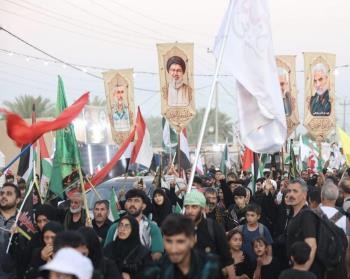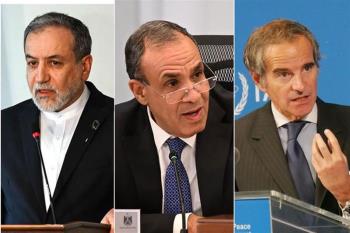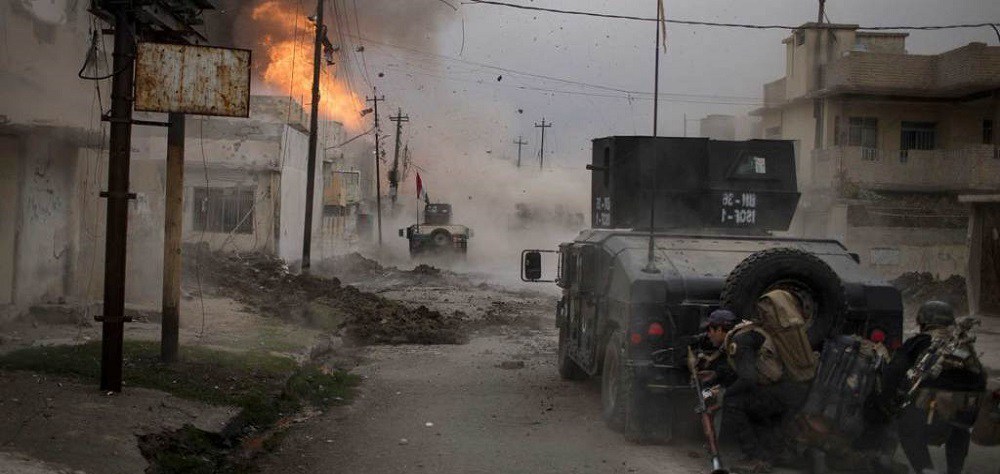Alwaght- Despite the fact that the Iraqi Prime Minister Haider al-Abadi a couple of months ago ordered start of another stage of the Mosul liberation operation to retake the western parts of the city from ISIS terrorist group, the progresses made by the armed Iraqi forces are going ahead very slow, to the extent that it has become an erosive process. It now looks like a multivariable equation.
The solution to this equation is largely dependent on an array of factors in political, battlefield, geographic, and humanitarian areas as follows:
1. Western Mosul's high population density
Human factor is one of the leading factors causing a slowdown in course of the northern Iraqi city’s liberation offensive. The reports put the number of the civilians living in the area and actually caught in the crossfire at about 10,000. ISIS terrorists mainly use the civilians as human shield in the face of the advancing Iraqi forces. In fact, the human factor in Mosul assault has turned into a strong obstacle of the airstrikes against terrorist positions.
The Iraqi political and social circles frequently disparaged the US-led anti-ISIS international coalition for air raids that left many civilian casualties in and around the city. The Iraqi criticism outraged especially after the coalition jets launched in late March 2017 an air assault in Mosul killing over 200 civilians. The coalition claimed its strike meant to destroy a truck suspected of carrying explosives destined for suicide attacks. The incident put heavy strains on the Americans from the Iraqi public opinion. And now at the Iraqi government’s request, the Western military alliance in Iraq has scaled down air operations of its aircraft over Mosul.
2. US not determined to see operation ending fast
The evidences lay bare the fact that the American security and military decision makers are struggling to delay as much as possible the recapture operation. They are trying to manipulate insecurity and terror in Mosul to wrest military and security concessions from the Baghdad officials and have their guarantee that the Public Mobilization Forces (PMF), a leading anti-terror voluntary force founded in opposition to ISIS, will not make its way towards Tal Afar and other areas on the common Iraqi-Syrian borders, from where ISIS easily deploys fighters and equipment from Syrian territories to Mosul.
3. Intensified ISIS suicide attacks in Mosul
ISIS has its own effective tactics when it is pressed within an area. It activates its hidden cells which are responsible for carrying out suicide operations by their own fighters or their explosion-laden trucks to push back the front line pressure coming from the opposite side. Civilians are the main victims of this type of terror assaults, something causing collapse of the forces' morale and slowdown of the cleansing mission.
4. High residential density
At the current phase of the operation, the Iraqi forces are focusing on cleansing the older part of Mosul and the areas around from ISIS militants. The area is densely populated, with small and twisting alleys preventing the advancing forces from using armored vehicles for effective confrontation with the terrorists. In such conditions, the reliance is much on the infantry. That is itself another hurdle ahead a sweeping end of the recapture operation.
5. Maximum reliance on classical military forces and warfare in the street war
The battle is pushed towards use of specific military tactics in the city fighting as due to density of population and residential areas it is impossible for the military forces to conduct airstrikes or drive armored vehicles in the area. At the present time, the US is heavily pressuring the central Iraqi government to not allow the PMF, a force with large guerrilla fight potentials, to effectively take a role in the clashes as the operation in the capital of Nineveh province is rolling on. This means that Iraq’s leadership has to only rely on classic armed forces in the street clashes, something inflicting heavy casualties on the Iraqi side that is losing further manpower as it presses ahead. Iraqi troop's losses negatively hit the Iraqi forces resolution and thus efficiency push out of the city the ISIS militants, and additionally makes the battle an erosive ordeal.
6. ISIS's defensive tactics
Planting Booby traps and other explosive devices aimed at killing people or destroying vehicles as well as digging tunnels to launch surprise attacks on the military forces in the winding alleys of older Mosul neighborhoods have also been key to halt progresses towards the terrorist-held parts of the city, to the extent that the Iraqi forces have to very slowly and carefully remove the land mines and other explosive wares to clear their way even if ISIS militants retreated from their positions.



























